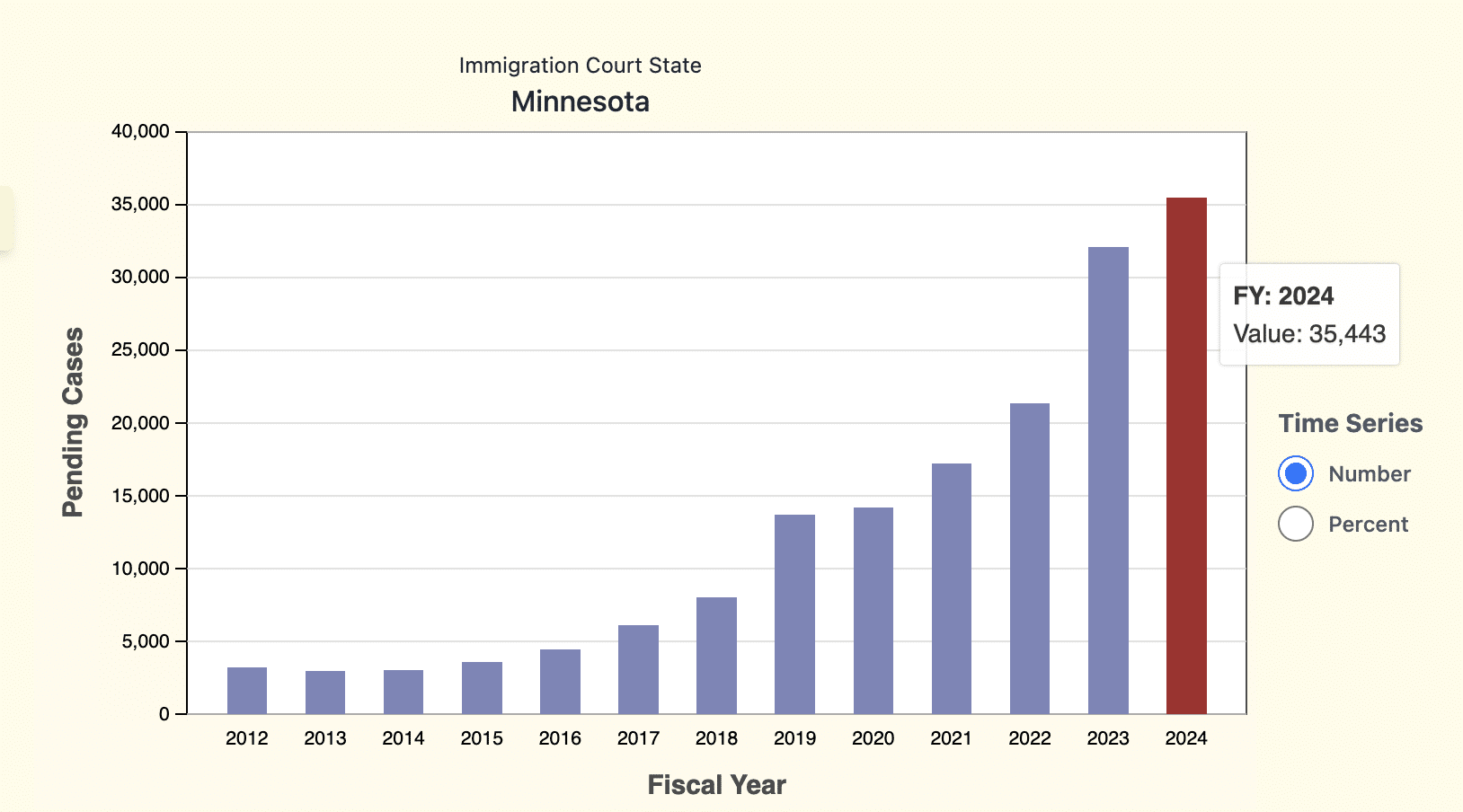
Minnesota’s only immigration court has a record-breaking backlog of cases, according to an immigration court tracking program from Syracuse University.
With 32,105 backlogged cases reported at the end of fiscal year 2023, the Fort Snelling Immigration Court in Bloomington has seen consistent and sharp increases in the number of immigration cases awaiting rulings by an immigration judge. Over the last 11 years, the number of backlogged cases has only grown year to year.
At the end of fiscal year 2013 there were 2,964 backlogged immigration cases in the State of Minnesota. When the 2016 fiscal year closed there were 4,416 backlogged immigration cases. With the backlogs continuing to grow, 2020 saw 14,158 backlogged cases at the close of that fiscal year. From 2020 to 2023, the number of backlogged cases increased by over 126%.

Data released by Newsweek this month shows that 1,177 migrants have left New York City for Minnesota since March 2022, making the state among the most popular destinations for migrants who have been bused from places like Texas and Florida to New York City.
Moreover, the average amount of time an immigration case is pending before the court after issuance of a Notice to Appear (NTA) is staggering. In fiscal year 2023, the average pending time for a case in Minnesota’s only immigration court was 550 days; over a year and a half.
Individuals awaiting a ruling from an immigration judge at Fort Snelling Immigration Court are non-citizens who may have violated immigration law, violated criminal law, or may represent a national security or terrorist threat. As such, the immigration judge will review their case and determine whether the individual’s conduct warrants deportation or other punishment.
The Department of Homeland Security (DHS) is the government agency that determines whether a non-citizen must appear before an immigration judge. The vast majority of individuals who appear before the immigration court in Minnesota are charged with immigration violations rather than criminal violations or national security related concerns.
Non-citizens processed at Minnesota’s immigration court include people from Ecuador, Ethiopia, Somalia, Mexico, Guatemala, Honduras, El Salvador, and Nicaragua.
Transactional Records Access Clearinghouse (TRAC), a program operated at Syracuse University in New York, collects this data using Freedom of Information Act (FOIA) requests sent “to the Executive Office for Immigration Review (EOIR), a unit within the Department of Justice (DOJ) in which these administrative courts are housed.”
As such, these figures come straight from the government entities that are responsible for processing these immigration cases.
However, the national data that TRAC receives from the federal government may be incomplete or partially missing due to the federal government’s actions. TRAC claims that they have “uncovered data quality issues in EOIR’s data management practices.” According to TRAC, “Thousands of EOIR database records on applications for relief have disappeared, and the number continues to grow each month.”
Additionally, TRAC claims, “17,706 asylum applications disappeared from EOIR files between FY 2019 – FY 2022.” TRAC says they have not received any “satisfactory” explanations from the EOIR despite repeated requests.








